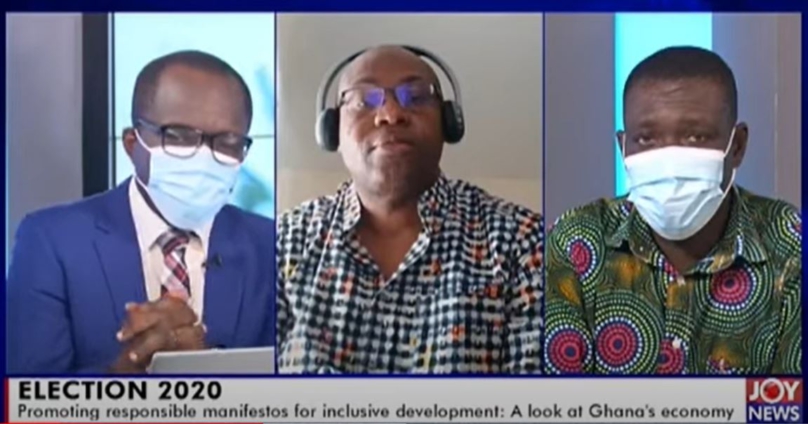
Audio By Carbonatix
Head of the Economics Department at the University of Ghana has called for the prioritisation of data collection in the formulation of manifestoes as Ghana inches towards the 2020 general elections.
According to Prof. William Baah-Boateng, the importance of data, coupled with research in the development of a country cannot be over-emphasised in the transformation of an economy.
He explained on PM Express June 4 that, it is essential to uphold this phenomenon as it guides in critical decisions made with regards to the execution of plans laid down in a manifesto, a step which remains pivotal after assumption of power by any party in the rollout of its promised initiatives.
“If you want to know where we are you need to look at the data and if you need to know how you’ve done, you need to look at the data. It seems that over the years when it comes to investing in data collection…I think we haven’t done well… We need to invest in data collection to be able to know the effect of any policy that we implement,” Prof. Baah-Boateng said on JoyNews.
He further explained that “currently you can only resort to the most recent data on employment dating back to 2017. I think it’s good but three years becomes very difficult. We can do more.”
The Associate Professor was speaking on the promotion of responsible manifestos for inclusive development with a focus in Ghana’s case as the country goes into another general election in December.
Also speaking on the show, fellow at the Ghana Centre for Democratic Development (CDD-Ghana) Prof Atsu Amegashie advocated the assessment of historical antecedents to help couch the best policies for the country.
The Professor of Economics with the University of Guelph in Canada was of the view that best practices must be critically adhered to be able to effectively consolidate the gains expected to be made through these manifestos.
“We have to learn from policies that have been practiced elsewhere or even within Ghana in the past and to be able to evaluate how well it has worked.
Citing government’s Free SHS programme as example, he indicated that “it is a good policy but we know it has some challenges. So we can learn from that and then you try to recalibrate what you are doing.”
He also highlighted the need for governments to be committed to the effective implementation of a policy framework and ideas.
Latest Stories
-
‘Adom FM’s Strictly Highlife’ lights up La Palm with a night of rhythm and nostalgia
5 minutes -
Ghana is rising again – Mahama declares
5 hours -
Firefighters subdue blaze at Accra’s Tudu, officials warn of busy fire season ahead
5 hours -
New Year’s Luv FM Family Party in the park ends in grand style at Rattray park
5 hours -
Mahama targets digital schools, universal healthcare, and food self-sufficiency in 2026
6 hours -
Ghana’s global image boosted by our world-acclaimed reset agenda – Mahama
6 hours -
Full text: Mahama’s New Year message to the nation
6 hours -
The foundation is laid; now we accelerate and expand in 2026 – Mahama
6 hours -
There is no NPP, CPP nor NDC Ghana, only one Ghana – Mahama
6 hours -
Eduwatch praises education financing gains but warns delays, teacher gaps could derail reforms
6 hours -
Kusaal Wikimedians take local language online in 14-day digital campaign
7 hours -
Stop interfering in each other’s roles – Bole-Bamboi MP appeals to traditional rulers for peace
8 hours -
Playback: President Mahama addresses the nation in New Year message
8 hours -
Industrial and Commercial Workers’ Union call for strong work ethics, economic participation in 2026 new year message
10 hours -
Crossover Joy: Churches in Ghana welcome 2026 with fire and faith
10 hours

